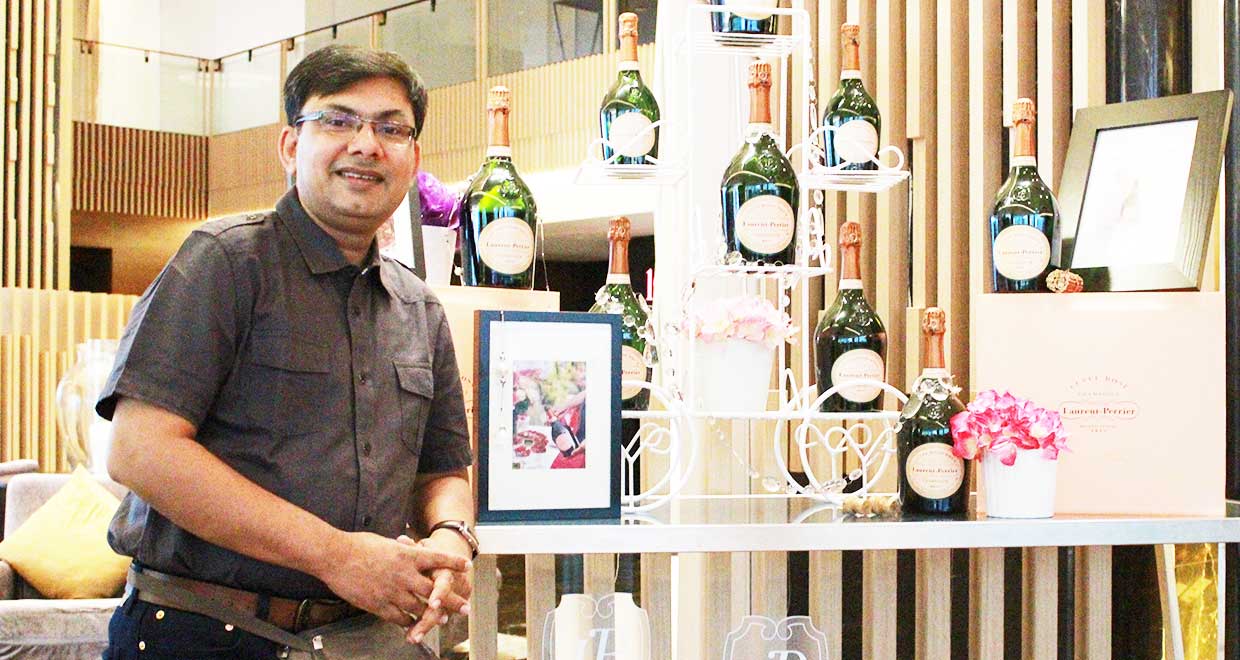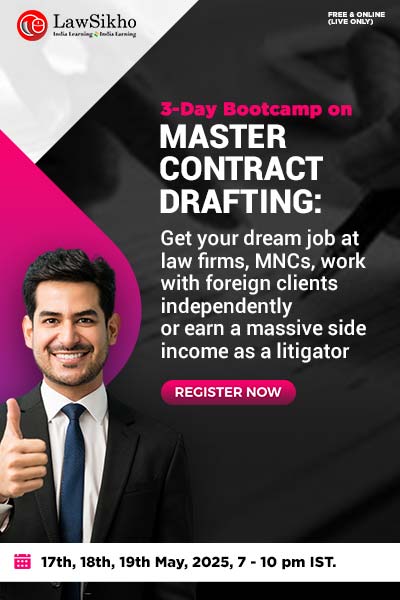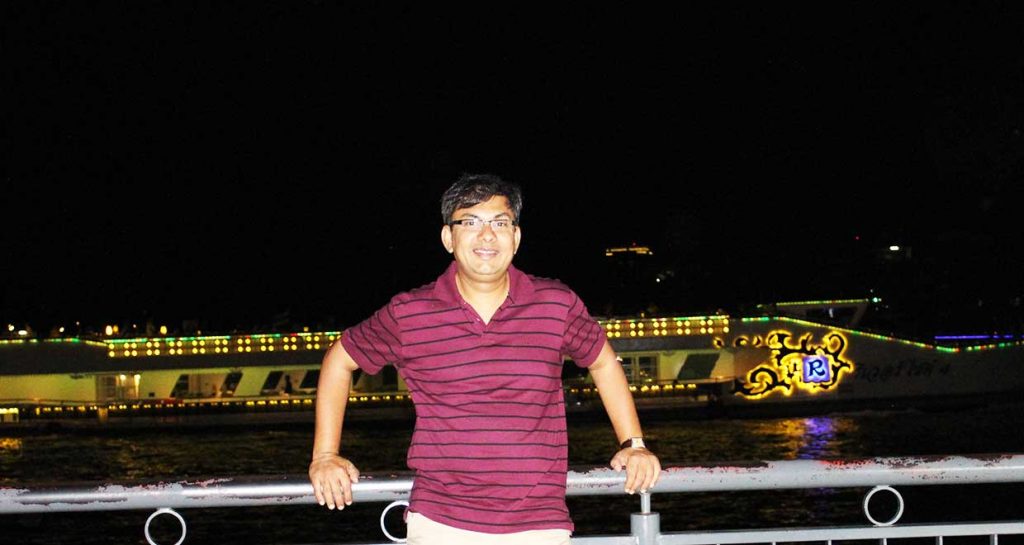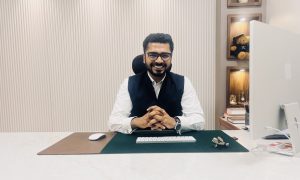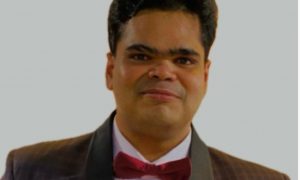Rai Mittal graduted in Law from CCS University, Meerut in the year 1992. Originally being a B.Com student, reading a murder case in one of the law journals at his father’s office made him realize his that Law was his true calling. Back in the early 1990’s Law when Law was not as promising as it is now, Rai started his practice at Muzaffarnagar- his hometown. Later he joined Singhania & Co. Advocates as an associate.
Currently, he is a Partner at Titus & Co, New Delhi where his work includes- advising clients, working on opinions, formulation of strategies, drafting, legal analysis, court and arbitration appearances and guiding and supervising associates and senior associates.
In this Interview Rai shares his insights with Rounak Biswas of SLS, Pune on the topics raised by Mihika Gupta of NLU Jodhpur.
How would you describe your journey as a lawyer?
I am currently associated with Titus & Co. as Partner. Titus & Co. was set up in the year 1997 and I have been associated with the firm since the very beginning. Prior to that, I spent one year in district court litigation practice on civil, criminal, revenue and labour law sides and thereafter about three years with Singhania & Co. Advocates and with IP firm Lall Lahiri & Salhotra.
Over the last 25 years, I have been involved in diverse assignments and areas of practice including commercial and corporate litigation and arbitration, intellectual property matters, general commercial and corporate work, contracts, industry specific advisory work, mergers and acquisitions, legal due diligence matters, franchise and licensing, technology transfers, FDI, regulatory work, investigations and white collar crimes, tax disputes, banking and finance, infrastructure work and employment laws.
I have had a keen interest particularly in commercial and corporate advisory work, dispute resolution, strategically advice on legal-commercial matters and intellectual property laws.
I like to work with a problem solving approach, endeavouring to advise clients from a commercial and practical standpoint. Having worked on a wide variety of assignments over two and a half decades, I believe that I am able to review issues as well as uncover issues from different perspectives. It’s, perhaps, like playing the role of a General Counsel while also acting as a specialist lawyer.
What motivated you to pursue Law?
It was while reading a reported murder case in a law journal (to which I got access in my advocate father’s library) that I realized that Law as a subject fascinated me. I was pursuing my final year of Bachelor of Commerce degree at that time. I had also become conscious of the fact that I enjoyed working on and solving problems, rather than doing something more of a procedural nature. I also realized that I should pursue a profession where quality matters more than quantity.
This made me give up the idea of pursuing chartered accountancy course which I had aimed to pursue after graduation. We of course know that the role of a chartered accountant at that time was very different from what it is today.
Was Law a rewarding profession when you got into it?
In the late 1980s/early 1990s, Law as a career was not rewarding and prestigious as it is today. Very few Lawyers earned handsomely. Particularly in small cities and towns, earnings were extremely limited and working conditions of Lawyers were poor. It is really good to see how things have improved over the last couple of decades.
What were your parents’ reactions to your decision to get into legal profession?
My father, though he a successful and respected Lawyer, was fond of journalism and social work, and he could never adore the profession more. However, I was perhaps destined to become a Lawyer, true to my interest and liking. My parents, though apprehensive, were supportive throughout.
How was your experience at Law school?
I was lucky to be taught by many practicing Lawyers and scholars, even though legal education those days certainly was not in good shape. It was a lot of fun cycling to Law school and engaging in discussions on legal topics with professors and other Law students.
Most Law schools during those days were far below today’s general standards. Only a few students seriously pursued Law as a career. Attendance in Law schools was usually low and classes were held infrequently. There were no debates, no moots, no seminars, no training and no internships. However, despite all shortcomings, there was no dearth of good Lawyers. They were probably as good and knowledgeable as one can be today.
Describe your early years in the profession.
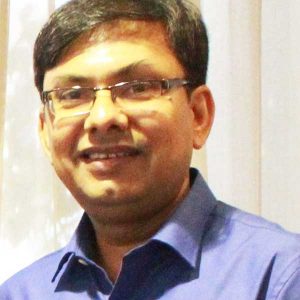 I started practising in my home town Muzaffarnagar, U.P. The first year was amazing when I got an opportunity to work on different kinds of legal matters – which included revenue and land matters, labour Law cases, civil, criminal and consumer disputes. I practiced on the original side and in revisions and appeals at different levels with a lot of free hand. Those were the days when I learnt to implement theory in practice. I used to enjoy, which I still do, surprising the other side with a novel argument.
I started practising in my home town Muzaffarnagar, U.P. The first year was amazing when I got an opportunity to work on different kinds of legal matters – which included revenue and land matters, labour Law cases, civil, criminal and consumer disputes. I practiced on the original side and in revisions and appeals at different levels with a lot of free hand. Those were the days when I learnt to implement theory in practice. I used to enjoy, which I still do, surprising the other side with a novel argument.
As cases of substance and importance fascinated me, I moved to Delhi with the urge to practise in the Supreme Court but landed a job as an associate in Singhania & Co. Advocates. The two years of my association with Singhania was extremely useful as I was frequently worked on different tasks, right from IP to Corporate to Dispute Resolution to Firm Management. Singhania was my first experience of practising in international scenario and it was just the beginning.
What are your views on the importance of higher education?
Pursuing higher education leads to better prospects. It enhances knowledge and skills enabling a person to analyse things deeply and view a situation from different perspectives. It aids in providing a competitive edge in the career market, higher pay opportunity and better communication skills and makes a person more focused, disciplined and responsible. As LL.M is now a one-year course in most Universities in India and abroad, it makes sense to go for it.
Describe your work profile at Titus & Co.
I usually start my day in the office early. Every day is challenging as it brings up new issues of diverse nature. Meetings with clients, working on opinions, formulation of strategies, drafting, legal analysis, court and arbitration appearances and guiding and supervising associates and senior associates takes the entire day.
Can you recall the first time you appeared in a significant matter in court?
I prepared for my first few cases by organising and reading files, doing Law research, preparing notes, discussions with seniors, getting tips from colleagues and inquiring about the general attitude and nature of the concerned Judge.
These days most of the Judges are welcoming and supporting young Lawyers. They encourage young Lawyers to come forward and plead their cases without any fear.
Which are the good areas for the practice of Law?
Any and all areas are good. It depends on your personal liking. I would suggest that one should be open to do all kinds of different assignments during the initial few years of Law practise and then choose what fits him or her the most.
How do you see the future of young law professionals?
The future of the profession looks quite promising. Opportunities in the profession are immense. With Law getting more and more complicated and of specialized nature, sincere and smart Lawyers would continue to do extremely well in the profession.
What are the skills one needs to develop to succeed in the legal profession?
To succeed in legal profession, one should have good communication, analytical and research skills and creativity and ability to persist and convince. One should be focused and have a practical approach.
Students and young Lawyers can develop requisite skills by regular reading on Law topics, participation in debates, interacting with people in the profession and watching court proceedings. One should focus not only on curriculum, which comprises of studies, mooting, debating, etc., but also learn time management techniques, be positive and always keep looking for new learning opportunities which will help one to broaden horizon and thus help in facing new challenges that come one’s way.
Most importantly, learn to enjoy the profession!

